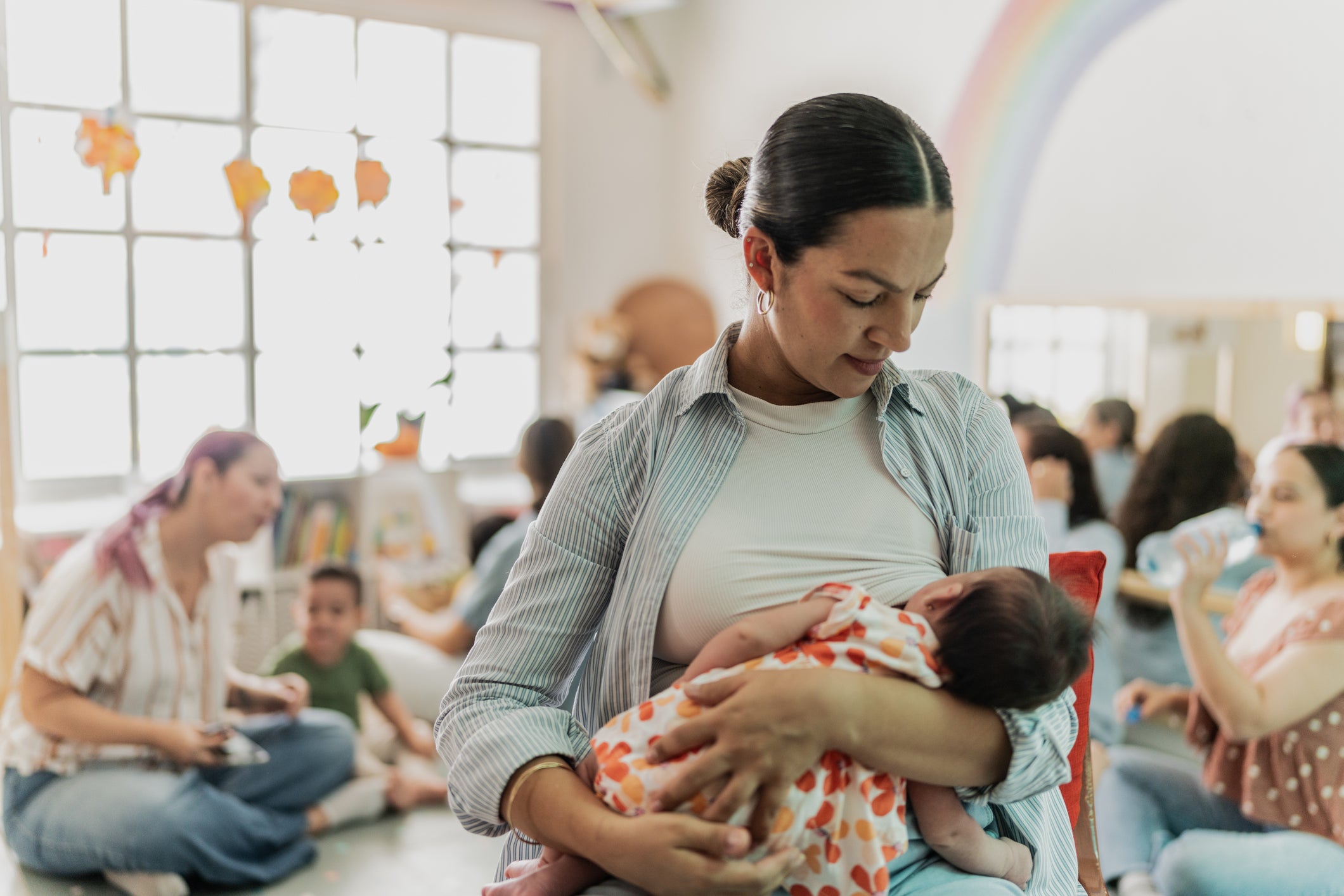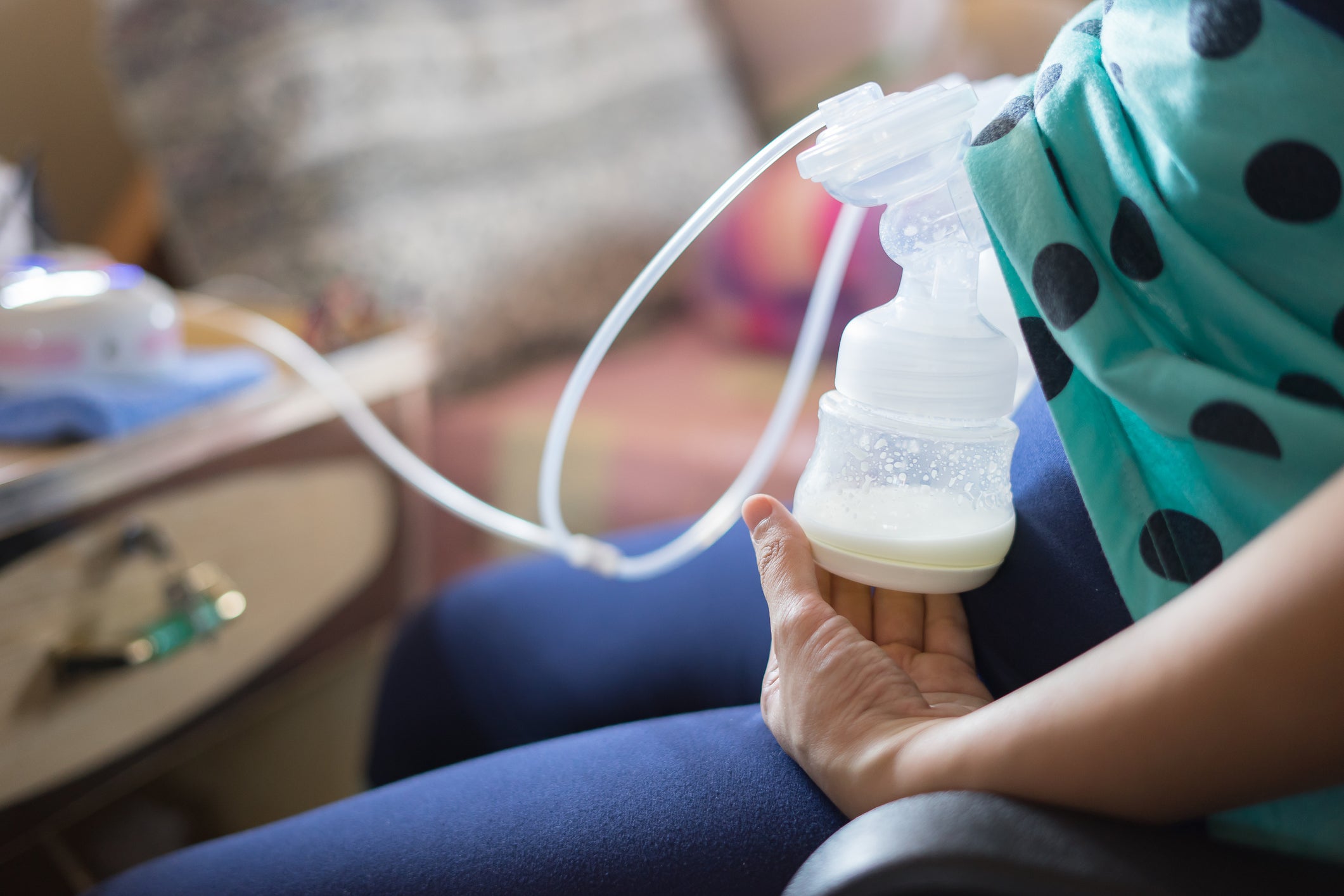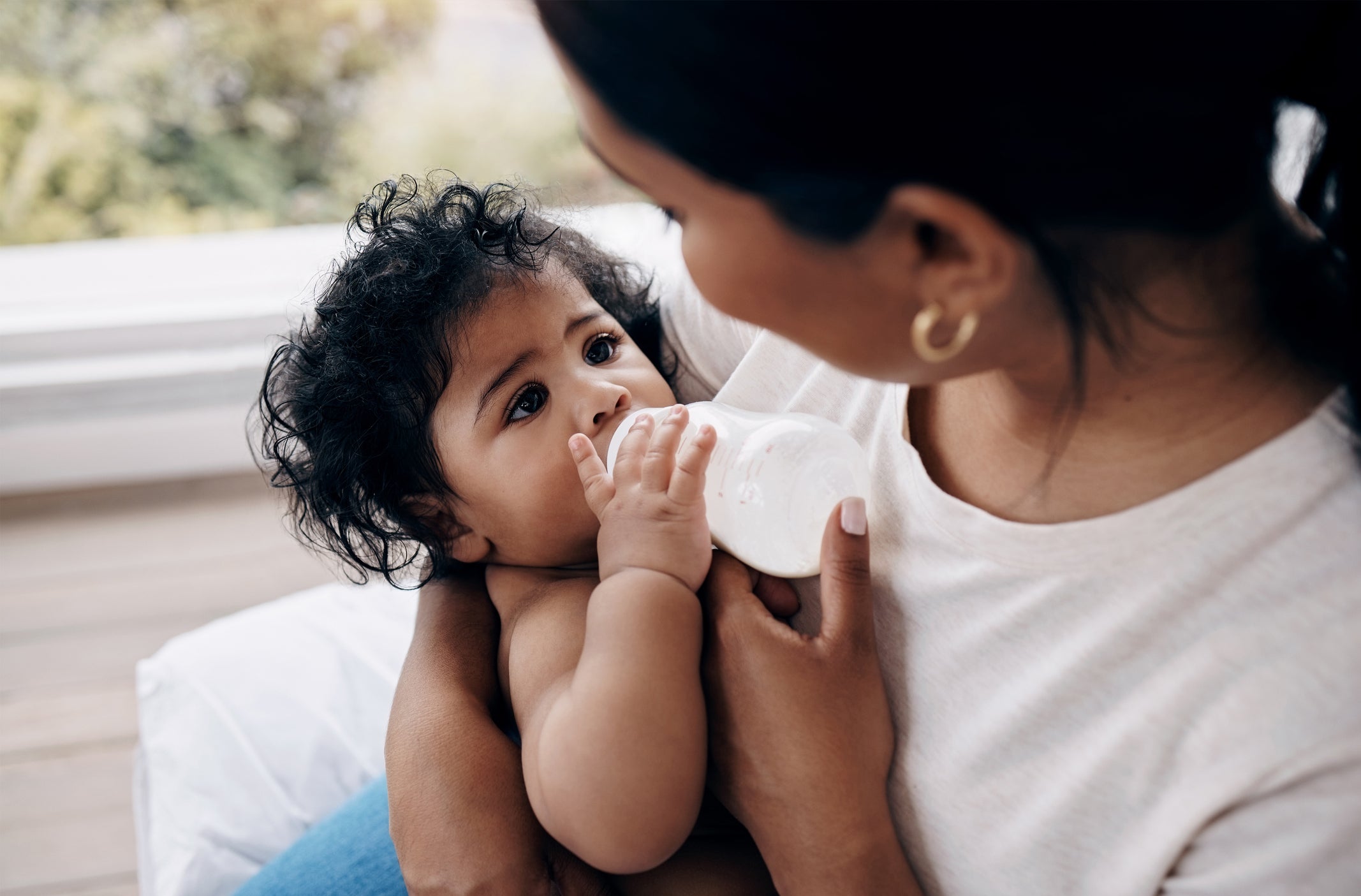Your assist helps us to inform the story
From reproductive rights to local weather change to Large Tech, The Unbiased is on the bottom when the story is creating. Whether or not it is investigating the financials of Elon Musk’s pro-Trump PAC or producing our newest documentary, ‘The A Phrase’, which shines a light-weight on the American girls combating for reproductive rights, we all know how necessary it’s to parse out the info from the messaging.
At such a crucial second in US historical past, we’d like reporters on the bottom. Your donation permits us to maintain sending journalists to talk to either side of the story.
The Unbiased is trusted by Individuals throughout the complete political spectrum. And in contrast to many different high quality information shops, we select to not lock Individuals out of our reporting and evaluation with paywalls. We consider high quality journalism needs to be out there to everybody, paid for by those that can afford it.
Your assist makes all of the distinction.
She’s latched!” my doula exclaimed triumphantly, eradicating her hand from the again of my 10-minute-old’s head and changing it – somewhat forcefully – with my very own. I felt a rush of pleasure and reduction. That’s it, I assumed, breastfeeding goes to be alright.
Besides it wasn’t alright. The truth is, it was so un-alright that we ended up in A&E simply three days later, my daughter having misplaced over 10 per cent of her beginning weight. We have been suggested to hurry there by a midwife over the cellphone, after I’d talked about in passing that my daughter hadn’t had a moist nappy in over 12 hours. “She’s dehydrated,” we have been informed, as we sat clutching our treasured bundle beside an ominous-looking incubator, a jumble of wires protruding of it. “We don’t assume your milk has are available in.”
And positive sufficient, once they hooked me as much as a breast pump, not a drop of milk got here out. Not one single drop. I felt ashamed and responsible. For 3 days I’d been placing my daughter to my breast, she’d been latching completely, doing all the things she was meant to do, however I hadn’t held up my facet of the deal – I hadn’t truly been producing something to nourish her.
The physician suggested that we would have liked to offer her formulation, which they introduced for us, in order that she may begin to rehydrate. Determined, panicked and with postpartum hormones nonetheless raging by means of my physique, I couldn’t get the plastic tip of the bottle into her mouth quick sufficient. “Does this imply I can’t breastfeed in any respect?” I requested. “You possibly can,” the reply got here. “However till you let down your milk (a time period which refers back to the hormonal response that causes milk to move from the breasts when a child or pump prompts the nipple’s nerve endings) you’re going to additionally must substitute with bottles, particularly till she’s regained the load she misplaced.”
I do know I’m not alone. In accordance with analysis from Yale Public College of Well being, practically half of moms globally self-report inadequate milk as a motive for shifting to formulation, and a research from 2021 discovered that over half of latest mums expertise breastfeeding guilt. Fifty per cent of the moms who responded to a survey commissioned by BBC Radio 4’s Girl’s Hour and BBC Radio Sheffield stated they felt that they’d let their child down once they struggled to breastfeed and revealed they felt ashamed for giving their little one formulation.
Sadly, there’s nonetheless a whole lot of stress on dad and mom to completely breastfeed. Moms are sometimes topic to moral-based language surrounding toddler feeding practices which may improve the sensation of judgment. Feedback like, “Breast is finest,” or, “You should not have tried onerous sufficient,” painfully indicate second-rate parenting. It’s little surprise then, that we are able to really feel grief and ache once we need to breastfeed however discover we are able to’t.
We left the hospital however the sense of dread stayed with me. On the best way dwelling, I known as a lactation guide, who suggested that I put the newborn to my breast and let her latch earlier than giving her the bottle, “in order to keep away from her changing into too used to the bottle and never eager to be on [my] boob in any respect.”

For weeks, even as soon as minimal quantities of milk had begun to return by means of, each time I knew we have been approaching a feed I’d really feel a deep sense of unease and anxiousness. Usually it might trigger me to really feel sick. I’d cry as I attempted to get the newborn to latch, my fingers shaking, feeling defeated if she didn’t instantly begin to suckle. Over time, I reached for the bottle of formulation increasingly more rapidly, determined to keep away from letting her go hungry for a single second, so shaken was I by our earlier episode.
Two months in, after a number of visits from the lactation guide, hours upon hours hooked as much as a medical-grade breast pump and sufficient tears to fill a number of bathtubs, my husband stated to me softly: “I feel we simply want to simply accept that she’s a formula-fed child and that’s superb.”
And the rational a part of me knew that. An important side of feeding a child is that the newborn is fed and completely happy, whether or not that’s by breast milk or formulation, and I firmly consider that it’s a private alternative girls ought to be capable to make for themselves with out worry of judgement.
I’d lock myself within the lavatory and simply sit there in tears, squeezing to try to get extra milk out
Jaimie*
However on the time it didn’t really feel superb. My sleep-deprived mind couldn’t cease spinning. Had I not tried onerous sufficient? Was my incapacity to breastfeed going to influence our bond? Was there one thing flawed with my physique?
I had plenty of pals who had formula-fed their kids, I’d by no means felt any judgement over it, and I wouldn’t be capable to pick who had been breast or formula-fed if I checked out a lineup of them. And, crucially, I carry no judgement on girls who actively select to bottle-feed their kids; the ache right here comes from the removing of my very own potential to observe my “plan” for feeding. For some new mums, co-sleeping is necessary, whereas others prioritise contact naps or cognitive stimulation. For me, it was breastfeeding. And in order somebody who had at all times seemed ahead to holding my child to my chest and feeding her, who had spent hours researching methods and advantages, the grief of not having the ability to take action nonetheless stays, over 14 months on.
Once I assume again to these first days of breastfeeding, unaware that my daughter was getting no milk, I really feel nauseous. I can nonetheless scent the plasticky scent of paediatric A&E and I nonetheless really feel visceral ache over not having been capable of expertise breastfeeding absolutely, or for longer. Typically, particularly at night time, I’m overwhelmed by these emotions.

Researchers on the UC Davis Medical Middle beforehand seemed into the difficulty of breastfeeding and located that 92 per cent of 418 new mums surveyed stated they have been having issues breastfeeding three days after giving beginning. And solely 13 per cent handle to breastfeed completely for the primary six months of their child’s life. Jaimie* falls into the 92 per cent who struggled with breastfeeding and felt she had to surrender to guard her psychological well being. “I’d lock myself within the lavatory and simply sit there in tears, squeezing my boobs to try to get extra milk out,” she tells me. “I’d usually find yourself with painful, tender patches due to how onerous I’d been kneading the breast tissue, however I simply didn’t know what else to do.”
After two months, she moved to formulation. “I used to be hit with a wave of guilt and reduction concurrently once I made the choice to cease,” she says.
And Emily’s* description of the guilt she felt mirrored my very own. “I used to be discharged after giving beginning with no breastfeeding assist in any respect, however I didn’t actually realise that I wanted it – or was entitled to it,” she displays. “I simply assumed you place the newborn in your nipple and away you go, and due to my lack of know-how I nonetheless blame myself.”
However Crystal Miles, a doula, breastfeeding knowledgeable, mum/child bonding specialist and founding father of Related Infants, has a reassuring response: “Although there are a variety of medical explanation why somebody won’t be capable to breastfeed (PCOS, prior breast surgical procedure and so on), the most typical motive girls are unable to take action is that they haven’t obtained sufficient or early sufficient assist.”

“It’s helpful to carry with you that ladies don’t fail at breastfeeding, however that ladies are failed with breastfeeding assist,” she continues. “If it’s the top of your journey, permit your self to grieve and really feel the feelings that come up for you, while realizing you cared for and nourished your child. There are additionally many different lovely methods to bond and get the oxytocin flowing, corresponding to child therapeutic massage and responsive feeding [following your baby’s cues and feeding them when they are hungry].”
And Dr Maria Knobel, the Medical Director of Medical Cert UK, agrees. “Coping with the feelings that include eager to breastfeed your child after which not with the ability to could be extremely difficult. It’s a deeply private expertise, and it’s regular to really feel a variety of feelings, from disappointment and frustration to guilt and disappointment. Step one is to acknowledge these emotions and perceive that they’re legitimate. It’s okay to grieve the lack of the breastfeeding expertise you had hoped for. This acknowledgement is essential as a result of it means that you can course of your feelings somewhat than suppress them, which may result in extra vital emotional misery over time.”
She provides: “Do not forget that formulation feeding or different alternate options are legitimate and nutritious selections to your child. Shifting the main focus from breastfeeding as a purpose to the general well-being and happiness of each you and your child could be empowering. Making knowledgeable choices based mostly on your loved ones’s wants and circumstances can assist alleviate emotions of guilt and allow you to offer the most effective care to your little one.”
I’m hopeful that as time goes on, and milk is phased out of the equation totally, my grief might be too. With out formulation my child wouldn’t be the completely happy, wholesome 14-month-old she is immediately, and for that, I’m really grateful. However for now, I’m nonetheless grappling with the fact of my motherhood journey wanting totally different to how I’d envisaged it. Indirectly, aren’t all of us?
*Names have been modified
#unable #breastfeed #child #guilt #overwhelming
The Unbiased
#unable #breastfeed #child #guilt #overwhelming
Anya Meyerowitz , 2024-12-14 06:00:00

